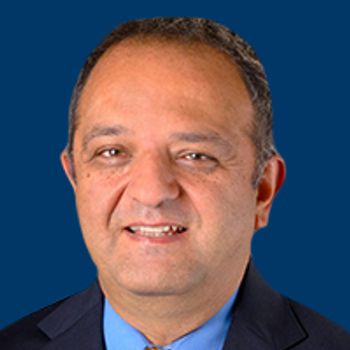
Ciltacabtagene autoleucel continued to yield early, deep, and durable responses after longer follow-up in patients with relapsed/refractory multiple myeloma.

Your AI-Trained Oncology Knowledge Connection!


Ciltacabtagene autoleucel continued to yield early, deep, and durable responses after longer follow-up in patients with relapsed/refractory multiple myeloma.

The addition of daratumumab to lenalidomide and dexamethasone continued to reduced the risk of death by 32% compared with Rd alone in patients with newly diagnosed multiple myeloma who are transplant ineligible after almost 5 years of follow-up.

The combination of lenalidomide and rituximab continued to improve progression-free survival with durable outcomes and a manageable safety profile in patients with indolent B-cell non-Hodgkin lymphomas and mantle cell lymphomas.

Treatment with teclistamab, administered subcutaneously at a dose of 1500 µg/kg once weekly, led to a high response rate and an encouraging safety profile in patients with relapsed/refractory multiple myeloma.

Bone-protecting agents utilized during treatment with radium-223 plus enzalutamide reduced the risk for fractures in men with asymptomatic or mildly symptomatic metastatic castration-resistant prostate cancer.

The second-generation 4-1BB bi-specific CAR T-cell therapy C-CAR039 improved response rates and showed favorable safety in patients with relapsed/refractory B-cell non-Hodgkin lymphoma.

Tivozanib led to a more than doubled median duration of response compared with sorafenib in patients with metastatic renal cell carcinoma.

The CAR T-cell therapy idecabtagene vicleucel continues to demonstrate improved survival among heavily pretreated patients with relapsed/refractory multiple myeloma.

The administration of adjuvant carboplatin and paclitaxel following standard cisplatin-based chemoradiation failed to demonstrate an improvement in progression-free survival or overall survival in women with locally advanced cervical cancer, according to findings from the phase 3 OUTBACK trial.

Single-agent pembrolizumab yielded robust antitumor activity in patients with locally advanced or recurrent/metastatic cutaneous squamous cell carcinoma.

Although the combination of olaparib and cediranib showcased modest efficacy over cediranib alone in patients with recurrent, metastatic or persistent endometrial cancer, the difference was not statistically significant.

February 12, 2021 - The novel prostate specific membrane antigen–targeted radiopharmaceutical for PET imaging technique, 18F-DCFPyL, demonstrated potential in identifying occult prostate cancer and more accurately characterizing disease burden.

February 8, 2021 - These findings may have implications for patients with hematologic malignancies, suggesting the development of protective memory against SARS-CoV2 and non-SARS human coronaviruses.

January 28, 2021 - Pembrolizumab continued to demonstrate a clinically meaningful improvement in overall and progression-free survival, compared with docetaxel, in patients with previously treated, PD-L1–positive advanced non-small cell lung cancer after more than 5 years of follow-up.

January 16, 2021 - Frontline use of pembrolizumab monotherapy significantly improved progression-free survival, while demonstrating superior safety, compared with chemotherapy in patients with microsatellite-instability high/mismatch repair deficient metastatic colorectal cancer.

December 10, 2020 - Mindfulness meditation and survivorship education classes reduced depressive symptoms in younger women treated for breast cancer.

December 9, 2020 - Among women who underwent a mastectomy plus reconstructive surgery, those who received a breast cancer diagnosis, received chemotherapy and were younger were reported to have a higher risk of new chronic controlled substance use.

December 7, 2020 - The addition of subcutaneous daratumumab to pomalidomide and dexamethasone significantly reduced the risk of progression or death by 37%, compared with pomalidomide and dexamethasone, in patients with relapsed/refractory multiple myeloma who had received ≥1 prior line of therapy.

Treatment with cabozantinib in combination with atezolizumab demonstrated promising clinical activity in patients with advanced clear cell renal cell carcinoma.

Treatment with AMG 160 showed a manageable safety profile with preliminary efficacy in patients with metastatic castration-resistant prostate cancer.

Olaparib induced a significantly longer duration of overall survival, compared with enzalutamide or abiraterone plus prednisone, in men with metastatic castration-resistant prostate cancer who had tumors with at least 1 alteration in BRCA1, BRCA2, or ATM and whose disease had progressed during previous treatment with a next-generation hormonal agent.

Findings showed that AMG 330 was safe and tolerable in treating patients with relapsed or refractory acute myeloid leukemia, with cytokine release syndrome as the most frequent and expected adverse event.

Results from the CheckMate 9LA suggested that frontline treatment with nivolumab plus ipilimumab combined with 2 cycles of platinum-doublet chemotherapy in patients with metastatic or recurrent non-small cell lung cancer should be considered a new option for this population.

Following at least 3 years of follow-up, patients with advanced non-small cell lung cancer and tumor PD-L1 expression ≥ 1% or < 1% experienced durable and long-term efficacy benefits from frontline treatment with nivolumab plus ipilimumab, compared with chemotherapy.

Brian I. Rini, MD, speaks about the TIVO-3 trial and how its results could provide patients with another “weapon in this disease.”

Integration of a comprehensive geriatric assessment with geriatrician-led management care improved health-related quality of life, unplanned hospital admissions, and treatment discontinuation among older adults undergoing systemic therapy for their cancer.

Treatment with olaparib in the maintenance setting extended overall survival by 12.9 months in women with platinum-sensitive relapsed ovarian cancer with BRCA1/2 mutations, compared with placebo, according to randomized phase 3 trial results presented during a 2020 ASCO Virtual Scientific Program press briefing.

Physicians should “get out there and test early and often,” to align with a potential new paradigm for genetic testing that allows anyone on the treatment team to identify and test individuals, with the specialist ultimately providing risk management, according to Kevin S. Hughes, MD, FACS.

Trastuzumab deruxtecan (T-DXd; DS-8201) induced a confirmed objective response rate of almost 61% and a durable benefit in heavily pretreated patients with advanced HER2-positive breast cancer.

The addition of venetoclax to obinutuzumab reduced the risk for disease worsening or death by 65% compared with obinutuzumab plus chlorambucil in patients with previously untreated chronic lymphocytic leukemia.